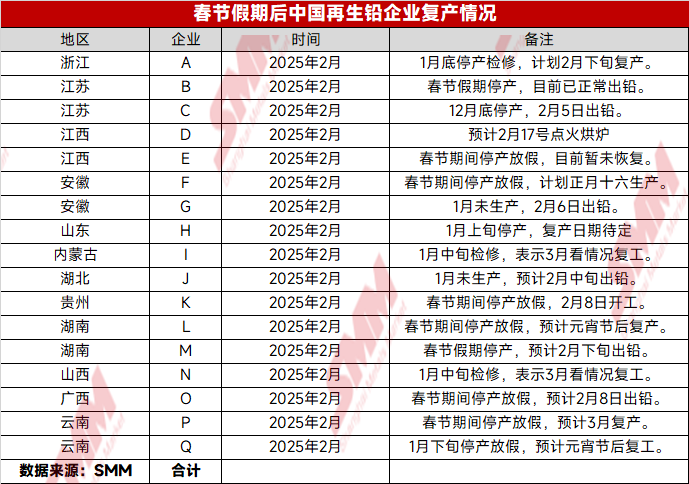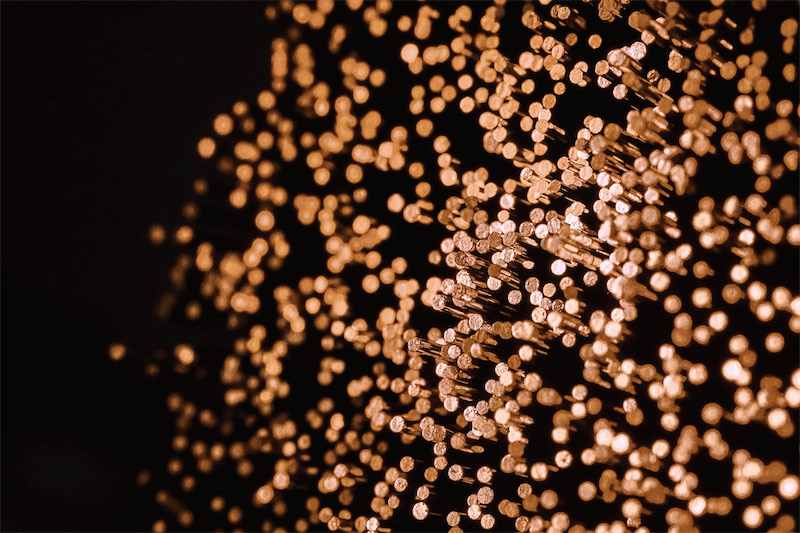》View SMM Lead Product Prices, Data, and Market Analysis
》Subscribe to View SMM Historical Spot Metal Prices
》Click to Access the SMM Database
SMM, February 7:
After the Chinese New Year holiday, China's secondary lead industry is experiencing a production resumption peak, with multiple secondary lead smelters planning to resume production in February. Specifically, Zhejiang A plans to resume production in late February after halting operations for maintenance at the end of January. Jiangsu B has already resumed normal lead output after suspending production during the holiday. Jiangxi D is expected to start production on February 17, while Anhui F plans to resume production on the sixteenth day of the lunar month. Additionally, Guizhou K and Hunan L both suspended production during the holiday and are expected to resume on February 8 and after the Lantern Festival, respectively.

These production resumption plans are expected to sharply increase demand for raw material battery scrap. However, due to the limited volume of scrapped batteries and the fact that recyclers have not fully returned to work after the holiday, the supply of battery scrap may face tightness. With demand surging and supply constrained, battery scrap prices are likely to rise significantly, supporting lead prices. Furthermore, the increase in raw material costs could pressure the profit margins of secondary lead smelters and may also impact the cost structure of downstream battery manufacturers.
Given weak end-use consumption, low purchasing enthusiasm among battery dealers, and high finished product inventories at battery producers, rising raw material costs may affect the production resumption plans of secondary lead smelters. Therefore, it is crucial to closely monitor market dynamics and their impact on lead prices. Secondary lead smelters need to plan raw material procurement and production schedules carefully to address potential raw material supply tightness and rising costs.


![SMM February 13 EV Battery Market Summary [SMM Evening News]](https://imgqn.smm.cn/usercenter/xVUpr20251217171722.jpg)
![Pre-Holiday Trading Atmosphere Sluggish, SHFE Lead Records Doji [Lead Futures Brief Review]](https://imgqn.smm.cn/usercenter/PKFMX20251217171721.jpg)